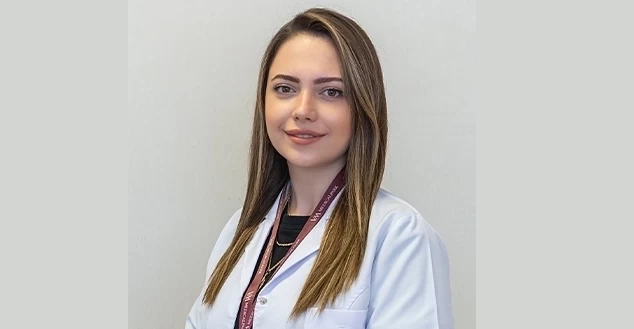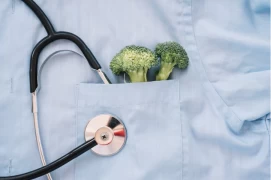
Nutritional Support During Pregnancy and Breastfeeding
- Nutritional Support During Pregnancy and Breastfeeding
- Pregnancy and Breastfeeding
- Why is Nutritional Support Important During Pregnancy and Breastfeeding?
- Nutritional Support During Pregnancy and Breastfeeding
Pregnancy and Breastfeeding
Pregnancy and breastfeeding are two of the most important periods in a woman's life. During these periods, healthy nutrition is a crucial factor for the well-being of both the mother and the baby. The pregnant and breastfeeding body requires extra energy, protein, vitamins, and minerals to meet increased nutrient needs and support the healthy development of the baby.
Why is Nutritional Support Important During Pregnancy and Breastfeeding?
Pregnancy and breastfeeding bring about a series of physiological changes in a woman's body. Healthy nutrition during these periods is highly important to maintain the health and development of both the mother and the baby. Here are some factors explaining the significance of nutritional support during pregnancy and breastfeeding:
• Healthy development of the baby: The mother's nutritional status during pregnancy and breastfeeding is vital for the baby's healthy growth and development. The baby receives nutrients from the mother's body. Therefore, the mother should provide necessary nutrients to her baby through adequate and balanced nutrition.
• Maternal health: During pregnancy and breastfeeding, the mother's body needs to meet increased energy and nutrient requirements. Healthy nutrition helps maintain the mother's energy levels, strengthen the immune system, and support postpartum recovery. Additionally, sufficient nutrition allows the mother's body to store an adequate amount of vitamins and minerals.
• Prevention of nutrient deficiencies: Pregnancy and breastfeeding come with increased nutrient requirements and an elevated risk of certain nutrient deficiencies. For instance, iron deficiency anemia and folate deficiency are common issues during pregnancy. Healthy nutrition helps prevent these nutrient deficiencies and protects the health of both the mother and the baby.
• Breastfeeding and milk production: During breastfeeding, the mother should consume extra nutrients and fluids to produce an adequate amount of milk. Good nutrition enhances the quality and quantity of breast milk, ensuring the healthy growth and nourishment of the baby.
• Maternal psychology and mood: Pregnancy and breastfeeding periods involve hormonal changes and physical stresses. Healthy nutrition can have a positive impact on the mother's psychology and mood, reducing the risk of postpartum depression and promoting overall well-being.
In conclusion, nutritional support during pregnancy and breastfeeding is of vital importance to preserve the health of the mother and the baby, support healthy growth and development, and prevent nutrient deficiencies. Since every woman has different needs, it is crucial to consult a dietitian during pregnancy and breastfeeding to create individualized nutrition plans.

Nutritional Support During Pregnancy and Breastfeeding
Here are some important points to support healthy nutrition during pregnancy and breastfeeding:
• Balanced diet: It is important to consume adequate amounts of essential food groups in each meal. These groups can include fruits, vegetables, whole grains, protein sources (meat, chicken, fish, eggs, legumes), dairy products, and sufficient intake of fiber-rich foods for digestive health.
• Extra calories: Energy requirements increase during pregnancy. It is recommended to consume approximately 300-500 extra calories per day during the second and third trimesters. These extra calories should come from healthy foods.
• Protein: Protein is important for the baby's development. Protein requirements increase during pregnancy and breastfeeding. Adequate amounts of protein sources such as meat, chicken, fish, eggs, milk, yogurt, cheese, and legumes should be consumed.
• Iron: Iron requirements increase during pregnancy. Consuming iron-rich foods is important to reduce the risk of iron deficiency anemia. Good sources of iron include red meat, chicken, fish, eggs, dried fruits, grains, and green leafy vegetables. Consuming foods rich in vitamin C along with iron-rich foods enhances iron absorption.
• Calcium: Calcium is important for bone and dental health. Dairy products such as milk, yogurt, and cheese are rich sources of calcium. Additionally, sesame seeds, almonds, and green leafy vegetables also contain calcium.
• Folic acid: Folic acid is important during pregnancy to reduce the risk of neural tube defects. Foods such as green leafy vegetables, legumes, and orange juice are rich in folic acid. Your doctor may recommend folic acid supplementation if necessary.
• Fluid intake: Consuming an adequate amount of water is important during pregnancy and breastfeeding. Aim to drink at least 8-10 glasses of water per day.
• Avoidance of processed foods: It is important to choose fresh, natural, and nutritious foods instead of processed and ready-made foods during pregnancy and breastfeeding. Processed foods often contain high levels of salt, sugar, and additives.
• Vitamin C and iron absorption: Consuming vitamin C-rich foods alongside iron-rich foods can enhance iron absorption. For example, drinking orange juice with meat dishes or consuming fruits with iron-fortified cereals.
• Regular meals: Consuming regular meals during pregnancy and breastfeeding is important. Opting for healthy snacks during intervals can help maintain stable blood sugar levels.
Every woman's needs may be individual, so it is important to consult a dietitian regarding nutrition during pregnancy and breastfeeding. A dietitian can provide you with personalized nutrition plans and supplementation recommendations.






